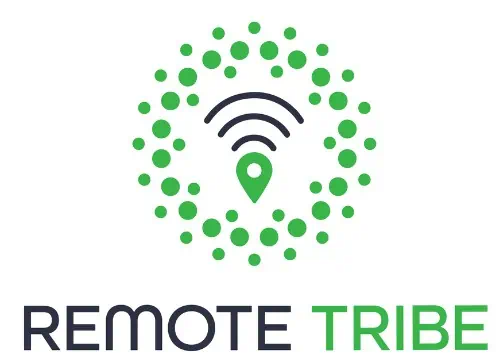With the rise and popularity of remote work in recent years, there has been an increasing number of companies with hybrid teams that have adapted and diverged from the traditional work week that requires teams to be working in the office together five days a week, eight hours a day.
As many companies are choosing to adopt a hybrid model, many people are enjoying newfound benefits including being able to maintain a better work-life balance that fits their needs, choosing their own work schedule, and determining which time zones and locations they want to work from. All of these amazing benefits come with challenges that all hybrid teams can creatively and collaboratively solve in order to keep their team thriving.
Table of Contents
1. Asynchronous work schedule

Working for a hybrid team with an asynchronous work schedule can be challenging because each person on the team is granted the option of choosing their own schedule in addition to choosing which time zone they want to live in. Because of these liberating choices, not all members of a hybrid team will be working at the same time.
Therefore, hybrid teams must have a clear and collaborative plan to stay connected and in communication when working asynchronously.
Here are some ways to make sure that every team member is working together on the team’s common goals while working on different schedules and in different time zones:
- Openly communicate
- Streamline collaboration with communication platforms.
Use synchronous communication platforms that are either integrated into the project management software or choose an independent communication platform depending on what your team needs.
2. Virtual team building

For hybrid teams that have employees spread across different time zones, virtual team building is essential for continually getting to know each other and building relationships.
To initiate virtual team building efforts, you can:
- Have virtual events
- Meet with your team one-on-one
- Express your gratitude
3. Having in-person meetings
Planning and scheduling in-person team meetings is absolutely essential to supplement the virtual team building that you do as a hybrid team. It allows people on hybrid teams to set down all distractions and get to know each other face-to-face while building trust and creating meaningful relationships.
Putting together in-person meetings for hybrid teams requires your team to choose how often to have these in-person meetings. A common frequency for in-person meetings amongst hybrid teams is one to four times a year, depending on what your team needs, the time needed to plan the travel, venue, and accommodation arrangements, the cost of each meeting, and how long the meeting lasts.
Another point to address when planning your in-person team meeting is to ask what the objectives for the meeting are.
If your team is meeting purely for team-building purposes, you can plan to engage in fun team-building activities, like a round of introductions, icebreakers, and game nights.
On the other hand, your team could incorporate brainstorming exercises where you have roadmap sessions to incorporate ideas from team members about new projects that are on brand and will bring in revenue for and awareness of the company, if the team has the time and energy to tackle new projects and goals.
4. Maintain mental and physical health - How to
- Drinking enough water to maintain good hydration
- Writing in a gratitude journal
- Taking small breaks during the day
- Sleeping well
- Walking outside
- Choosing to participate in a favorite form of exercise
- Enjoying some sunshine
- Setting up time everyday to go screenless
Case study: Airbnb went from in-office to hybrid successfully
Back in April, Airbnb revealed its ambitious plan to have their employees choose whether they want to work in the office or work remotely anywhere in the world. Their asynchronous restructuring plan is further proof that companies can go from working in an office to working on a hybrid basis without losing productivity or team collaboration.
Advice for managers leading hybrid teams
If you manage a hybrid team, the key takeaway is to be mindful of what your team needs based on the nature of the work your team does, the work-life balance that each team member maintains, and how often and extensively your team should be communicating and collaborating. If your team is content and connected, they will excel in their work which will fuel the success of your company.









